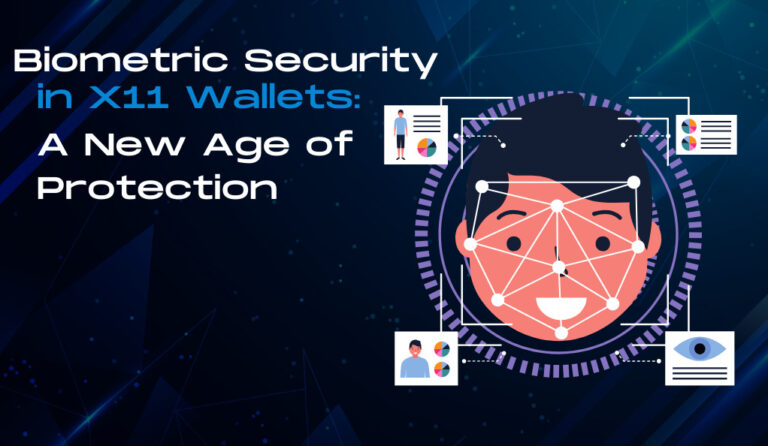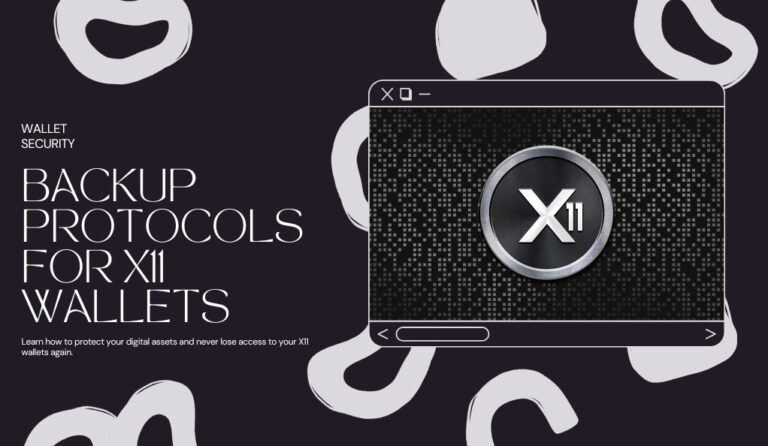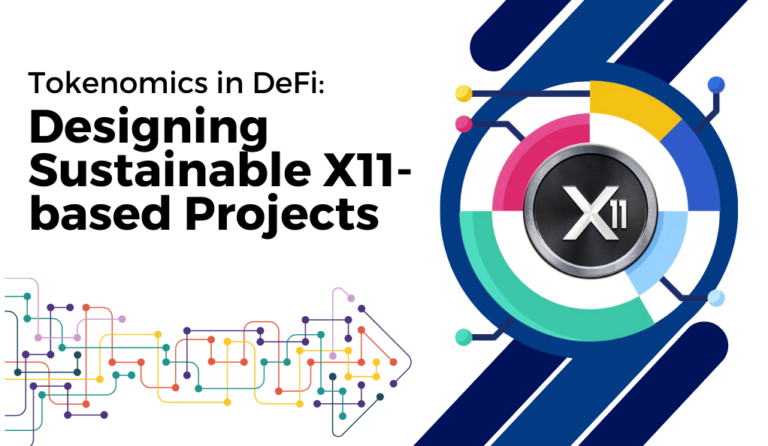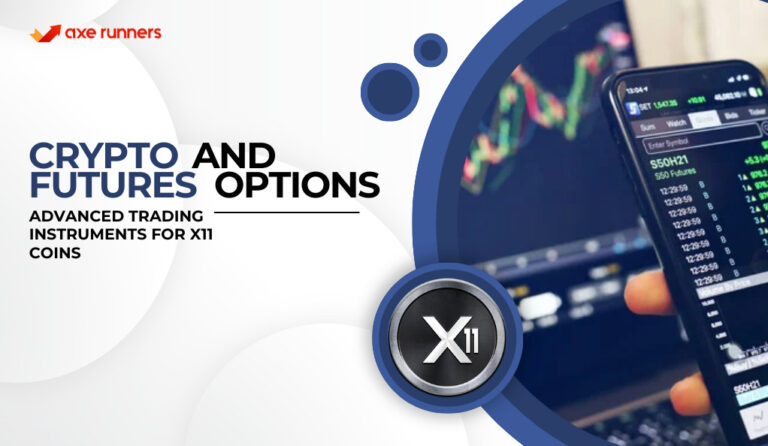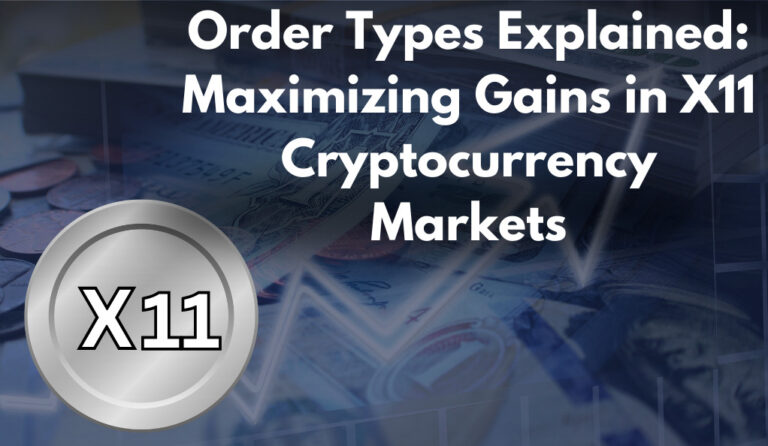In the ever-evolving landscape of cryptocurrencies, wallets play an indispensable role. They are the gatekeepers of our digital assets, ensuring that our cryptocurrencies are safe and accessible. Among the myriad of crypto wallets available, X11 wallets have garnered significant attention. But what sets them apart? The answer lies in their integration with smart contracts, a revolutionary technology that promises to redefine the way we think about security in the digital realm.
What are Cryptocurrencies and Why Do We Need Wallets?
Cryptocurrencies, at their core, are digital or virtual currencies that use cryptography for security. Unlike traditional currencies issued by governments, cryptocurrencies operate on a decentralized platform, typically a blockchain. This decentralization offers a level of transparency and security that’s unparalleled in the traditional financial world.
However, with great power comes great responsibility. Holding cryptocurrencies means you’re essentially your own bank. And just like you wouldn’t leave the doors of a bank vault wide open, you need a secure place to store your digital assets. This is where crypto wallets come into play.
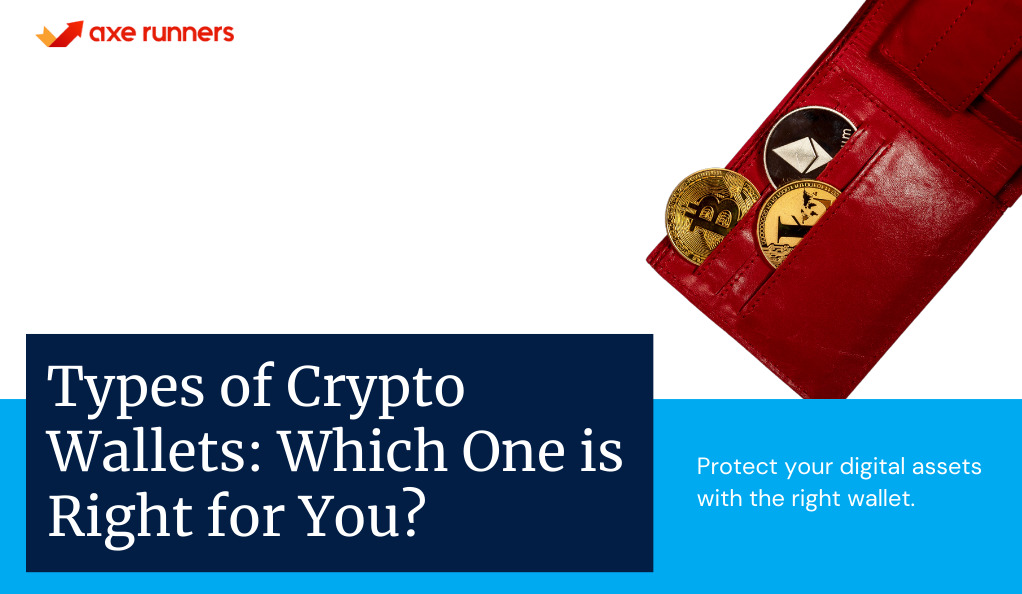
| Type | Description | Examples |
|---|---|---|
| Hardware | Physical devices that store private keys offline. | Ledger, Trezor |
| Software | Applications or platforms accessible via desktop, mobile, or web. | MetaMask, Exodus |
| Paper | Physical document containing private and public keys. | – |
| Brain | Memorized set of recovery phrases or private keys. | – |
Enter X11 Wallets
Among the various types of wallets, X11 wallets have emerged as a popular choice for many crypto enthusiasts. Named after the X11 hashing algorithm, these wallets offer a unique blend of security and functionality. But their true potential is unlocked when combined with the power of smart contracts.
Smart Contracts
Imagine a contract that can self-execute and self-verify without the need for intermediaries. That’s a smart contract in a nutshell. Built on blockchain technology, smart contracts are automated, decentralized contracts where the terms of agreement or conditions are written into lines of code. They automatically execute actions when predetermined conditions are met, ensuring trust, transparency, and tamper-proofing.
In the context of X11 wallets, smart contracts play a pivotal role in enhancing security and streamlining transactions. As we delve deeper into this article, we’ll uncover the intricate relationship between X11 wallets and smart contracts, shedding light on how they collectively shape the future of digital asset security.
What are X11 Wallets?
The world of cryptocurrencies is vast, and with it comes a plethora of algorithms designed to ensure the security and efficiency of transactions. Among these, the X11 hashing algorithm stands out, not just for its robustness but also for the wallets designed around it.
The Genesis of X11
The X11 algorithm is a chain of eleven scientific hashing algorithms. This chaining of multiple algorithms enhances security by ensuring that even if one algorithm is compromised, the others remain unaffected. The multi-algorithm approach also offers better resistance against potential attacks, making X11 one of the most secure hashing algorithms in the crypto space.
| Algorithm | Description |
|---|---|
| Blake | Known for its speed and security. |
| BMW | Short for Blue Midnight Wish, it offers a high level of cryptographic security. |
| Groestl | Optimized for efficiency in hardware implementations. |
| JH | Named after its creators, JH offers a balance of speed and security. |
| Keccak | The foundation for SHA-3, a new cryptographic standard. |
| Skein | A fast and secure hash function. |
| Luffa | Designed for parallel processing, enhancing speed. |
| Cubehash | A cryptographic primitive known for its simplicity. |
| Shavite | A fast and compact algorithm. |
| SIMD | Stands for Single Instruction, Multiple Data, optimized for parallel processing. |
| Echo | Designed to be resistant against all known cryptanalytic attacks. |
Popularity and Adoption of X11 Wallets
Given the security features of the X11 algorithm, it’s no surprise that wallets based on this algorithm have seen a surge in popularity. These wallets not only offer enhanced security but also provide users with a seamless and efficient transaction experience.
Some of the most renowned X11 wallets include:
- MetaMask: A versatile wallet that integrates seamlessly with web browsers, allowing users to interact with decentralized applications directly.
- TokenPocket: Known for its user-friendly interface and robust security features.
- Assure Wallet: Prioritizes user privacy and offers a range of tools for asset management.
- SafePal: A hardware wallet that combines the security of offline storage with the convenience of software wallets.
The Basics of Smart Contracts
While X11 wallets offer a secure environment for storing and transacting digital assets, the integration of smart contracts elevates their functionality to new heights.
Defining Smart Contracts
At their essence, smart contracts are self-executing contracts where the terms of the agreement are written directly into code lines. They operate on the “if-then” principle. For instance, if a user wants to buy a digital asset, then upon payment, the asset is automatically transferred to the buyer’s wallet.
Advantages of Smart Contracts
- Trust: Since they’re decentralized and transparent, there’s no need for intermediaries, ensuring trust among parties.
- Security: Being on the blockchain, they’re encrypted and tamper-proof.
- Cost-Efficient: Eliminating intermediaries reduces costs associated with contract execution.
- Accuracy: Automated contracts reduce the errors that come with manual processing.
The Synergy between X11 Wallets and Smart Contracts
The fusion of X11 wallets with smart contracts is not just a mere technological integration; it’s a transformative combination that redefines the boundaries of digital transactions. Let’s delve into the intricacies of this synergy and understand its profound implications.
How X11 Wallets Utilize Smart Contracts
At a fundamental level, X11 wallets serve as a secure storage mechanism for digital assets. However, when integrated with smart contracts, they evolve into dynamic platforms that can automate and streamline a plethora of transactions. Here’s how:
- Automated Transactions: With smart contracts, transactions between parties can be automated. For instance, if a user sets a condition to sell a particular cryptocurrency when its price reaches a certain threshold, the smart contract will automatically execute the sale when that condition is met.
- Decentralized Applications (DApps) Integration: Many X11 wallets, like MetaMask, allow users to interact directly with DApps. These decentralized applications often rely on smart contracts to function, and the wallet serves as the bridge between the user and these applications.
- Enhanced Security Protocols: Smart contracts can be programmed to add additional security layers to transactions. For example, a multi-signature requirement can be implemented, where multiple parties must approve a transaction before it’s executed.
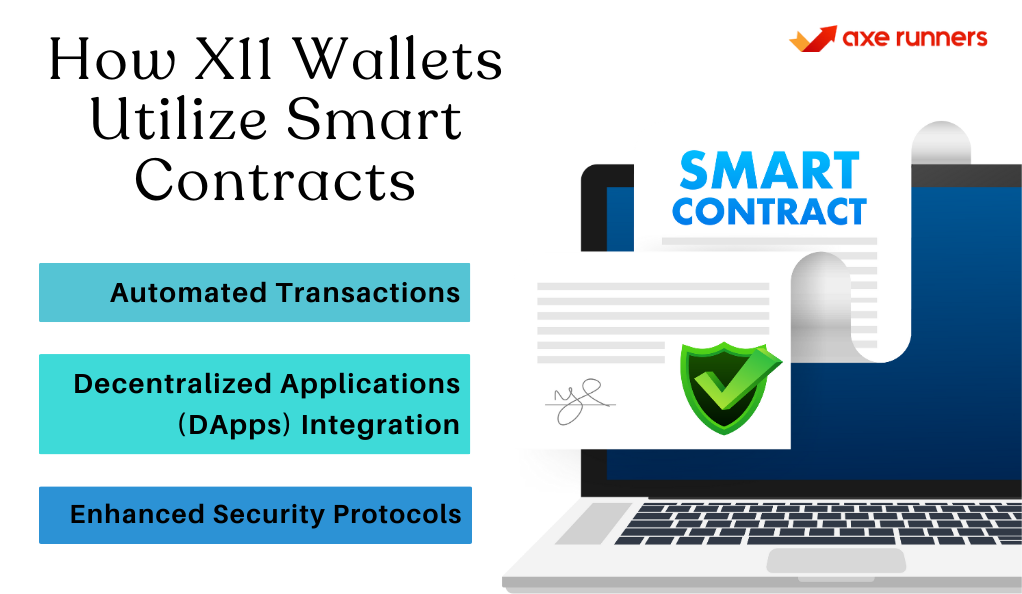
Benefits of Integrating Smart Contracts into Wallets
- User Empowerment: Users gain more control over their transactions, setting conditions and parameters without relying on third parties.
- Transparency and Trust: Every transaction executed through a smart contract is recorded on the blockchain, ensuring complete transparency and fostering trust among parties.
- Efficiency and Speed: Automated transactions mean faster execution and reduced waiting times. There’s no need for manual approvals or interventions.
- Cost Reduction: By eliminating intermediaries and automating processes, transaction costs are significantly reduced.
Security Implications
The integration of smart contracts into X11 wallets undoubtedly enhances functionality, but it also brings forth a new dimension of security considerations.
Role of Smart Contracts in Enhancing Wallet Security
Smart contracts, by design, are tamper-proof and immutable. Once deployed on the blockchain, they cannot be altered, ensuring that the terms of the contract are always executed as intended. This inherent feature significantly reduces the risk of fraud or malicious activities.
Moreover, smart contracts can be programmed to include advanced security protocols, such as time locks (where assets can only be accessed after a certain period) or multi-signature requirements, adding an extra layer of protection to the assets stored in the wallet.
Potential Vulnerabilities and Countermeasures
While smart contracts offer enhanced security, they are not entirely devoid of vulnerabilities. Bugs in the contract code or unforeseen scenarios can lead to potential risks. However, with rigorous testing, code audits, and by following best practices in smart contract development, these vulnerabilities can be minimized.
Future of X11 Wallets and Smart Contracts
The integration of X11 wallets and smart contracts is just the tip of the iceberg. As technology evolves, we can anticipate even more advanced features and applications.
Predictions and Trends
- Interoperability: Future X11 wallets might offer seamless integration with multiple blockchains, allowing users to interact with various networks using a single platform.
- Advanced Security Protocols: With the rise of quantum computing, there will be a need for even more robust security measures. Smart contracts could be developed to counter potential quantum threats.
- Mainstream Adoption: As more real-world applications emerge, the mainstream adoption of X11 wallets integrated with smart contracts is inevitable. We might see them being used in sectors like real estate, healthcare, and even governance.
Emerging Technologies and Their Influence
Technologies like Artificial Intelligence (AI) and the Internet of Things (IoT) could further enhance the capabilities of X11 wallets and smart contracts. Imagine smart homes managed through smart contracts or AI-driven automated trading strategies executed through X11 wallets.
Conclusion
The integration of X11 wallets with smart contracts represents a significant leap in the evolution of digital transactions, combining unparalleled security with dynamic functionality. Through real-world applications, this synergy has showcased its transformative potential, revolutionizing sectors from decentralized finance to blockchain gaming. As the digital landscape continues to evolve, the fusion of these technologies promises to redefine our understanding of secure, transparent, and efficient digital interactions.
Looking ahead, the future for X11 wallets integrated with smart contracts is bright. Their potential for interoperability, coupled with the integration of emerging technologies, suggests a trajectory towards mainstream adoption. In this ever-changing digital age, embracing this innovative synergy is not just a step towards enhanced digital experiences but a stride into a future where technology and human needs seamlessly converge.
At axerunners.com, our goal is to furnish well-rounded and trustworthy information regarding cryptocurrency, finance, trading, and stocks. Nonetheless, we avoid providing financial advice and instead encourage users to conduct their own research and meticulous verification.
Read More


